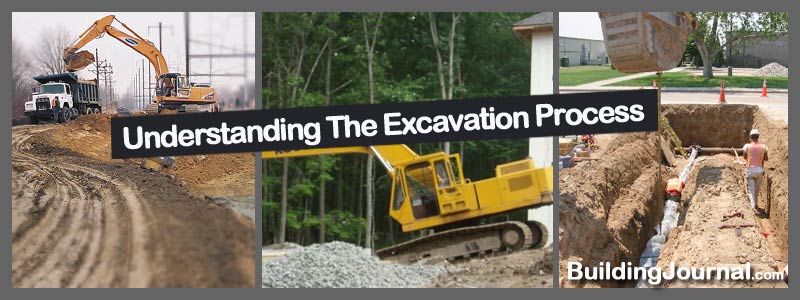| Home l Residential l Commercial l | ||||||||
|
|
||||||||
|
The definition for excavate is to unearth or lay bare. Excavation is an important part of any construction process and must be done first before any actual construction can begin. The site must be prepared through the processes of moving soil, grading, and then leveling the site before any actual building starts. Excavators perform many important services that are vital to making sure that the site is properly leveled and graded. This is important for making certain that the building has a solid foundation as well as ensuring for proper drainage on the site. Once a construction project is approved, the survey has taken place, and the site is staked out, it is time for the excavation work to begin. First the area needs to be cleared of any trees, boulders, roots, brush, logs or other large debris and impediments. Excavation contractors also sometimes demolish structures that need removing, and smooth out the soil on the building site. After the site has been prepped, the next step is to start on the digging. A piece of equipment called an excavator can be used to burrow deep into the ground. Excavator contractors can dig holes for foundations, basements and even holes for ponds, lakes and pools. After the foundation has its final form, it is supported with some backfill soil that is provided by the excavators. Depending on what the soil conditions are, backfill services may be expensive. However, the backfill can be critical for maintaining a basement that is water tight, so it is a necessary expense. Excavators can also cut out trenches, gutters, curbs and driveways. They also often build trenches for water lines, telephone cables, and electrical as well as doing ground work for septic systems and wells. In addition to debris removal and digging a hole, site preparation also involves smoothing the landscape out. Grading soil will help with drainage and make driveways and foundations more accessible. Proper drainage is absolutely essential and can take quite a bit of pre-planning. It is important to understand how water will flow and how your drainage might affect neighboring properties. Often water movement is determined by the composition of the soil, so it is important to know what types of soil the excavator will be working with. Excavators can also use their training and equipment to do asphalt and concrete paving jobs. They can also carry out demolition and hauling work as well. In the winter they may offer snow removal and snow plowing services for both residential and commercial clients. The excavation process of any construction project is a very critical step. It is important that the job is done thoroughly and correctly in order to have a level site that drains properly and that an appropriate space is dug out for a solid foundation to the building. Although excavators may be best known for digging holes, they also can perform a wide variety of excavation services including demolition, leveling and grading, trenching and even hauling and snow removal and plowing in the winter. |

